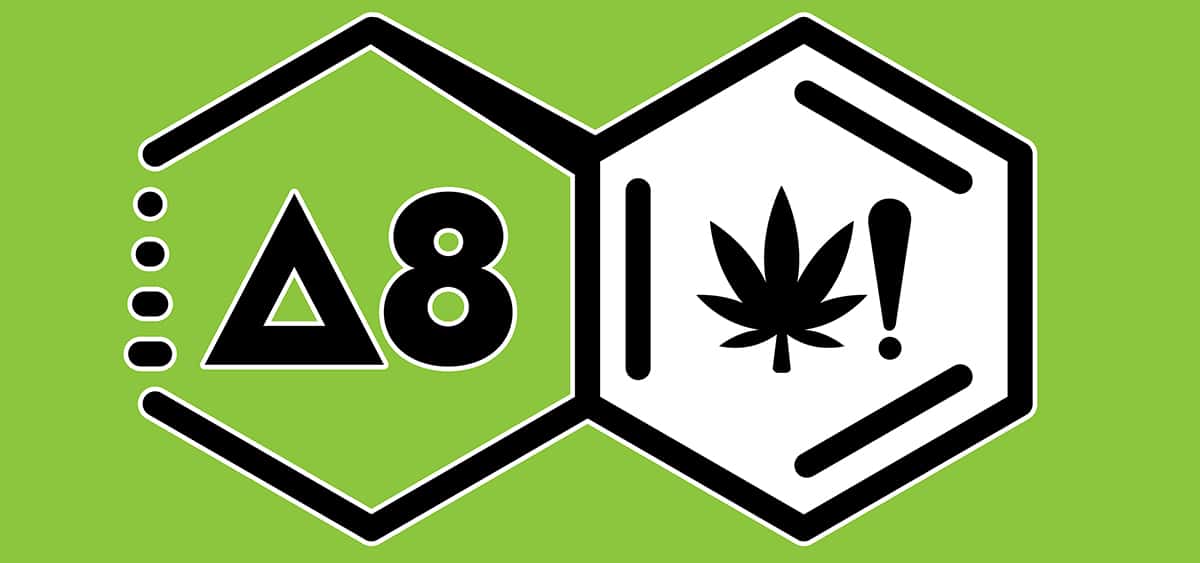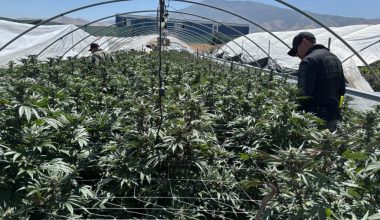A new study funded by the AMA shows that people in states where cannabis is illegal are more likely to use cannabinoids like delta-8 THC, suggesting prohibition may inadvertently encourage the use of these less regulated substance.
The University of Michigan, University at Buffalo, and Legacy Research Institute analyzed data from 1,169 adults, finding a 50% increase in CBD use since 2019, with 21% of Americans reporting use. The study found 25% of respondents used emerging cannabinoids in the past year, with higher delta-8 THC use in states without legal cannabis. Specifically, consumers who did not have access to legal cannabis in their state were twice as likely to have used delta-8 THC.
This supports the trend that legal access to regulated marijuana products decreases the use of unregulated cannabis, with researchers noting, “Higher delta-8-THC use in states without medical or adult-use cannabis laws suggests that cannabis prohibition may unintentionally promote delta-8-THC use.”
The study, partly funded by NIDA and NIH, calls for more research into these cannabinoids due to health concerns and lack of industry standards. Activists, operators, and scientists from the regulated cannabis industry have been calling for increased scrutiny and regulation of these products since they appeared in the market. Hemp operators, on the other hand, have vowed to fight to keep their products “legal.”
However, would consumer demand for Delta-8 and other hemp-derived intoxicating cannabinoids evaporate once cannabis is legal? The data seems to reflect that many consumers are interested in these products because they don’t have access to actual cannabis. Additionally, extracting cannabinoids from hemp plants that contain below 0.3% THC is logistically much less efficient than extracting these compounds from highly resinous plants: the only reason it’s more profitable for hemp product manufacturers to do so is because hemp is not subject to the same taxes and regulations as cannabis.
In a recent interview with Project CBD, organic chemist Paul Scialdone pointed out how the current regulatory reality creates problematic incentives for manufacturers to cut corners at the expense of consumer safety.
“These hemp hustlers are in it for the money, making active pharmaceutical ingredients using process chemistry and producing formulated end-products like vape pens, gummies, and sodas in garages, airplane hangars, basements, and warehouses. These products are sold over the internet, at gas stations, and in smoke shops to anyone with a credit card. Of course, the market for Δ8-THC and other recreational synthetics is only made possible by the ridiculousness of cannabis prohibition. End cannabis prohibition, the market for these products will go away and these compounds will be relegated to research labs, where they belong, not the marketplace.”
– Scialdone, via Project CBD
In the meantime, these compounds are widely available to consumers who reside in states without any form of cannabis legalization. With varying state and federal responses, the issue is expected to be addressed in the next Farm Bill, currently scheduled for late 2024.
The DEA has stated that they consider cannabinoids illegal if synthetically produced, as with delta-8 THC, though enforcement has been minimal to date.
Get daily cannabis business news updates. Subscribe
Medical Disclaimer:
The information provided in these blog posts is intended for general informational and educational purposes only. It is not a substitute for professional medical advice, diagnosis, or treatment. Always seek the advice of your physician or other qualified healthcare provider with any questions you may have regarding a medical condition. The use of any information provided in these blog posts is solely at your own risk. The authors and the website do not recommend or endorse any specific products, treatments, or procedures mentioned. Reliance on any information in these blog posts is solely at your own discretion.






